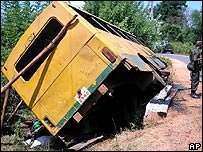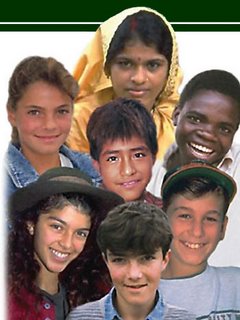Future of Mission
300th Anniversary Commemoration of Lutheran/Protestant Missionby Batholomäus Ziegenbalg and Heinrich Plütschau
Co-sponsored by the Multicultural Mission Resource Center of The Lutheran Theological Seminary at Philadelphia & the ELCA Department for Global Mission
Kudos to the Lutheran Theological Seminary in Philadelphia and its Multicultual Mission Resource Center headed by Dr. H.S. Wilson on an informative conference commemorating the 300th anniversary of Lutheran/Protestant mission in India. The event held on June 1st and 2nd, brought together several theologians, missiologists and students.
Prof. Andrew F. Walls, former Director of the Centre for the Study of Christianity in the Non-Western World at the University of Edinburgh in a key address spoke of the history of missions as a set of volumes. Now it is time to start a new volume in the history of missions, he said. In my response, I suggested several questions that we should consider as we begin to write that new volume. My comments follow:
A New Volume in the History of Mission
Professor Walls has presented the history of Christian Missions as a set of volumes. He has also suggested that the new context we are in at the beginning of this next millennium with the demographic and theological shifts he alluded to must indicate the beginning of the next volume in mission history.
What I would like to do is simply to articulate some questions that we might consider as we begin writing that new volume. I want to say that I come to this not only as a theologian but as an organizer and activist.. I am also an ecumenist – or as some say an ecumaniac – so I try to bring that perspective as well.
1. I want to begin with the question “What is Mission?”
I am sure each of you sitting here will have a very good and detailed answer, so I am not going to ask you to respond to that question. But I want us to recognize very clearly that this is not just a Christian question. In fact let’s recognize that “Mission” is not a Christian word, but an English word.
- Yesterday, I had a conversation with someone who said that he was coming to see me from Pakistan’s “Mission” to the UN.
- When President Bush went flew in triumphantly in a fighter pilot’s jacket to the aircraft carrier to proclaim to the world that the war was won, the sign above him read – “Mission Accomplished!”
- Any business worth its salt would have in the front of the brochures and literature their “Mission Statement”
But not only that, Buddhists, Hindus, Jews, Muslims and others also have “Missions” and do “Missions,” and it is time we engaged with them in that conversation.
2. What is the purpose of mission? If you ask specifically about Christian Mission – most people would say it is to “save” people. From what, you might ask. Most people would say from sin, hell, evil, degradation and dehumanization. To what, you might ask. Most people would say, to a new relationship with God, heaven, an abundant life, fullness, wholeness – to salvation
Leave aside governments and businesses for a bit – if you ask Buddhists, Hindus, Jews, Muslims and other religious people to define their mission, they might use different words and concepts but they will describe their mission in somewhat similar ways. The difference of course, is that we are right, and they are wrong!
3. We need to broaden our understanding of our mission of “saving” people. At our Interfaith Relations Commission meeting this past February, we, as a small part of the Ecumenical movement, had a dialogue with theologians at Fuller Theological Seminary in Pasadena, a small part of the Evangelical movement. After a couple of presentations to explore the theological struggles of each of our traditions as they sought to engage with people of other religions, having acknowledged that interfaith relations is one of the places where Ecumenical and Evangelical Christians have diverged, we divided up to small groups around tables. Our task was to come up with theological questions that should be on the agenda of a continuing Evangelical-Ecumenical dialogue. There were very good questions raised, but one groups questions remain in my memory. They had three.
1. Does God want all people to become Christians?
2. Can only Christians be saved?
3. What is salvation, anyway?
If we say yes to the first question, I must say we are doing a really poor job of evangelizing the world. Professor Wall reminded us that the world’s population is now at 6 billion people. But many Christians say no to the first question, and accept that God created us, human beings in great diversity just like the rest of creation, and like the rest of creation, God wants us to be in relationship to each other.
But there’s a disconnect. We don’t know how to be in relationship. Because western theologies still rooted in old paradigms haven’t figured out how to take religious pluralism seriously. My Interfaith Relations Commission has begun to seriously address this question, by undertaking to host a Special Topics Forum at the American Academy of Religion entitled Christian Theology’s Engagement with Religions Pluralism. We had such great interest in the topic last time that AAR has invited us to upgrade to a Program Unit. This is not just a missiological question. It is a question that the discipline of theology must take seriously. A colleague of mine, Prof. Anant Rambachan, a Hindu scholar at St. Olaf College (a great Lutheran institution!) speaking last year a conference of religious leaders in Geneva entitled “Critical Moment in Interfaith Dialogue” asked particularly of his Christian colleagues this important question: “What theological need do you have of me?” Then he added “If Hinduism was not in existence, how would Christianity be impoverished?”
What is salvation anyway?
Back in 1972, there was an answer from the Commission on World Mission and Evangelism (CWME). Their Bangkok conference produced a document called “Salvation Today.” I think this is still a critically important document. It was based on the 1971 booklet by MM Thomas entitled
Salvation and Humanisation. These documents suggest that salvation is about individuals and communities reaching up to their full humanity, to wholeness or (in other words) holiness. Although for a variety of reasons the ecumenical movement has not followed through on this theme broad understanding of salvation, I believe it is critically necessary.
Christians are not the only ones concerned about salvation. Other religious communities are also concerned about this and many non-religious people are interested in it particular if we think of salvation the way M.M. Thomas articulated. Can you see a conversation starting?
Can we invite Jews to begin to interpret the Exodus narrative more broadly, Muslims to think about salvation more broadly, even Buddhists and Hindus? Can we see a conversation starting on mission?
4. Who’s at the table?At the Edinburgh 1910, World Mission Conference out of 1200 delegates all but 17 were European or North American and there were few women in leadership. At the San Antonio 1989 Commission on World Mission and Evangelism conference some 70% came from Asia, Africa, Latin America, Caribbean or Eastern Europe. Significant leadership was in non-European/North American hands. 44% of the conference was women.
Now we need to think about other people at the table. The questions of Mission, particularly if we are talking about individuals and community searching for full humanity, wholeness or peace with justice, are also questions of Buddhists, Hindus, Muslims, Jews and for other people of faith, who may not necessarily subscribe to a particular religious tradition. “Mission” that we will attempt to do by ourselves will end up being insular and will necessarily prove offensive to our colleagues from other religious traditions.
5. Rather than a “grand narrative” we need to look for localized narratives.
In 1910, there was a tremendous sense of optimism. They saw a time when the whole world will be evangelized. There was a “grand narrative” that motivated them. “We have heard from many quarters of the awakening of great nations. The next 10 years will be in all probability constitute a turning point in human history – if rightly used they may be the most glorious in Christian history.” Today there is no such optimism of evangelizing the world. Rather, we need to promote localized narratives. We need to look for real human stories of struggle and pain as well as courage and hope in the local context. Our theologizing must begin there.
6. The post-colonial context.With the dismantling of colonialism the state sponsorship of missions ended, so did missionary support for colonial statecraft. We need to look critically at the new mission movement that seems to usher in a new permutation of this old alliance of church and state, and that is corporation and state. Critics of the new missionaries in third world countries point out that what the new missionary movement is doing is nothing short of priming the pump for economic globalization..
7. Post-modern contextIn the post-modern context elites find it hard to control information. There’s an information democratization. This is leading to alternative narratives/histories. So, rather than the grand narrative, we need to look for local narratives. But, we still can’t hear the voices of the sub-altern communities. They don’t have access to computers, they speak in vernacular languages and their communication symbols are very foreign to us. How do we hear their stories?
8. There’s an intense consciousness of religious plurality.This was true in Asia for centuries, but the west is just waking up to the fact of pluralism. Today the U.S. is the most religiously diverse country in the world. This has caused a great deal of anxiety among Christians who don’t have the theological tools to deal with this phenomenon, because Christian theology has not comprehensively addressed the question of religious plurality.
9. We need to deal with the culture of fear and polarizationAt the National Council of Churches, we have said that as against Fear, Fundamentalism and Fox (TV), our emphasis is on Peace, Poverty and Planet Earth. We need to address the continuing polarization in the world today. The recent cartoon controversy, immigration battles and empire building advance the polarization. We need to work together with people of other faiths to stand against this.
10. We are not alone in this quest.Indeed, not only religious communities, governments and businesses are interested in this conversation. The United Nations is calling religious leaders together in an initiative called the “Dialogue of Civilizations.” The governments of the Philippines, Kazakhstan, Senegal, Jordan among others are very interested in promoting this conversation. Business leaders are asking questions like: how can we reduce extremist rhetoric in the media and how can we bring religious values to the market place?
Friends, the old paradigms are gone! The “grand narrative” is over. We need to make new alliances, bring new people to the table – both at leadership levels and in local communities. And unless missiology is able to deal with these new realities as it writes the new volume, we’ll be totally irrelevant.




